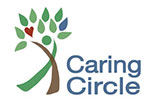Rotary aims to bring AEDs to Bowen – Jump Start program may help save lives
Amanda Ockeloen / Bowen Island Undercurrent
January 22, 2016 12:00 PM
Sudden cardiac arrest can strike anywhere, and it can happen to anyone at any time: shopping in the Cove, sitting in the ferry line up, reading a book at home.
The Rotary Club of Bowen Island has initiated a program named Jump Start that plans to site Automatic External Defibrillators, AEDs, at many points around the island where the public will be able to access one when needed. The club will also be supporting the basic training sessions so that anyone situated near an AED knows how to give CPR and use an AED to help a heart attack victim.
How prepared are you to deal with sudden cardiac arrest? Many people rely on a first-aid attendant, paramedic, staff member, or bystander to perform CPR (cardiopulmonary resuscitation) until emergency medical services arrive at the scene. Combined with CPR, using an AED may increase the likelihood of saving a person’s life over CPR alone.
This is something very close to my heart as I grew up in a family of first responders. My mum, Pam Still, was a paramedic, and my pops, Alan Still, was a paramedic and fire chief for many years on Bowen. The pager always seemed to go off right when my mum started frying onions for supper. I was left stirring and adding ingredients until they came home. It truly was very exciting, and I was so proud.
It was inevitable that I would join the ranks of paramedics, and then after seven or so years, steer into a calmer direction teaching first aid and how to use AEDs.
An AED is a small, portable, and easy-to-use device that assesses the heart of a person in cardiac arrest for a shockable rhythm. If a rhythm is detected, the helper is instructed to press a button to deliver a shock, or series of shocks, to the victim’s heart to allow it to return to a normal rhythm. If no shockable rhythm is detected, no shock can be given, and the helper must continue CPR until medical help arrives.
Sudden cardiac arrest occurs when the heart unexpectedly stops beating effectively. It is a major cause of death in Canada. Differing from a heart attack that is something you are conscious with and experiencing, sudden cardiac arrest means no vital signs are detected and the heart no longer pumps blood to the brain. Without the oxygen and nutrients supplied by the blood, brain cells begin to die within minutes and death soon follows. CPR can maintain oxygenation and blood circulation, but unless defibrillation is performed quickly, survival in unlikely.
SCA is a medical emergency today, but it doesn’t have to be fatal. For a few minutes before the heart stops completely, it usually goes into a rhythm called ventricular fibrillation (VF) a fluttering of the heart muscle. During VF, it is often possible to shock the heart back into a normal rhythm with the AED.
Through the pads applied to the chest, the AED analyzes the heart’s electrical activity and determines if a shock will be effective. Here is the most important piece: the window of opportunity for using an AED is small. Defibrillation is more successful if performed within five minutes of the cardiac arrest. Studies show that the chances of survival decrease seven to 10 per cent with every minute that passes after the arrest.
With a lot of homes on Bowen being at least 10 or more minutes from the Cove, unless you have an AED in your neighborhood, your chances of survival might be reduced.
A new system in place is linked with calling 9-1-1. If you have an AED and you have registered it with the BC PAD (public access defibrillators) program (bcpadprogram.ca), when you call 9-1-1 for an emergency, they can direct you to the closest AED.
Venues with registered AEDs will also receive courtesy e-mail reminders when AED pads and batteries need to be replaced.
Imagine you are out with a friend who collapses in SCA. By calling 9-1-1, getting an AED, and starting CPR, you can double their chance of survival. But how do you know where the closest AED is? You will if everyone who owns one gets it registered.
In summary, take a first aid course. You can learn how to save a life in as little as four hours. Keep your eye on The Undercurrent for upcoming information of our very own PAD program coming to Bowen with help from the Rotary Club.
Maintain a healthy lifestyle, and remember that you cannot make it worse by doing CPR and using an AED because the machine won’t shock unless a shock is needed.
In the upcoming weeks we will be giving information of the locations of AEDs on the island so far, and where we plan for more, and how you can get involved.
– See more at: http://www.bowenislandundercurrent.com/news/rotary-aims-to-bring-aeds-to-bowen-1.2156168#sthash.U5SEhDzJ.dpuf
